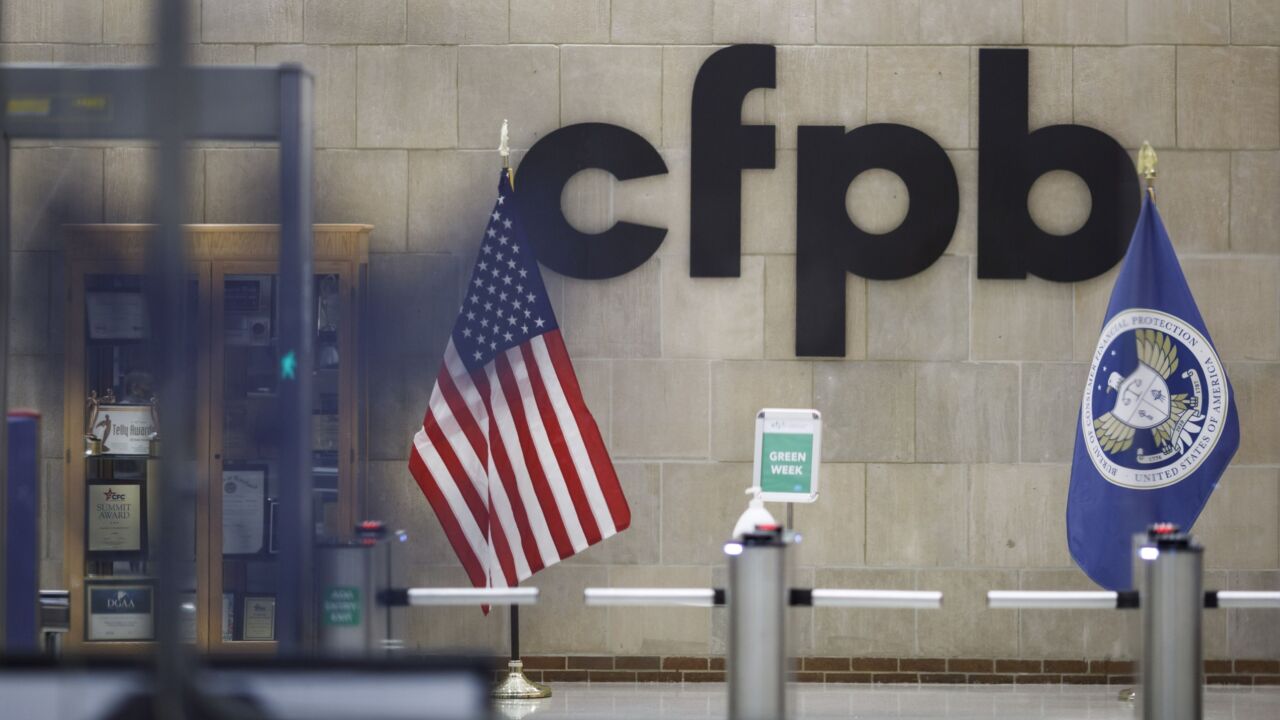
Federal prosecutors are continuing to pursue Federal Housing Administration lenders for past underwriting sins in an effort to hold them accountable and produce sizable settlements to bail out the government’s mortgage insurance fund.
Last week, the
The U.S. attorney is seeking treble damages under the False Claims Act which could cost Wells upwards of $750 million, according to an estimate by Sandler O’Neill.
Mortgage consultant Brian Chappelle called the Wells Fargo lawsuit a “killer” in terms of getting Federal Housing Administration lenders to expand their credit boxes.
“This suit does not have a chilling effect—it has a freezing effect,” he said. Chappelle is a co-founder of Potomac Partners in Washington. (According to a recent report, the average credit score for a borrower taking out a Federal Housing Administration loan during the second quarter of 2012 was 699. Before the housing bust, the average credit score on Federal Housing Administration-insured mortgages was around 630.)
The U.S. attorney has already reached underwriting abuse settlements with three mortgage lenders including CitiMortgage ($158 million), Flagstar Bank ($133 million) and Deutsche Bank ($202 million).
It is also known that the U.S. attorney, with the support of the Department of Housing and Urban Development, HUD Inspector General and the Department of Justice, is investigating other Federal Housing Administration lenders.
The Wells Fargo “complaint and others like it are necessary not only to deter future improper acts, but to recover damages on behalf of the FHA mortgage fund and taxpayers,” according to HUD general counsel Helen Kanovsky.
She noted that Wells Fargo is a “valued participant” in the Federal Housing Administration program.
But there was a time when the bank “did not consider the effect its actions would have on the program as well as the overall economy,” the HUD general counsel said in a statement.
The civil fraud lawsuit filed by the U.S attorney alleges that Wells moved aggressively to increase its Federal Housing Administration originations from May 2001 through 2005 while ignoring warnings from its quality control employees that a high percentage of its loans violated agency underwriting standards.
Federal prosecutors claim Wells encouraged the origination of bad loans by paying bonuses to its underwriters for approving loans—as opposed to paying bonuses for the number of loans reviewed. This bonus plan was an “accelerant to a fire that was already burning, as quality repeatedly took a back seat to quantity,” Bharara said.
The government says the nation’s largest lender certified it was adhering to Federal Housing Administration underwriting standards when a sizeable percentage of its originations did not actually meet guidelines and should have been rejected. (The case was filed in U.S. District Court in New York.)
The bank denies the allegations and claims it acted in good faith to comply with Federal Housing Administration rules.
“The bank will present facts to vigorously defend itself against this action,” a company spokeswoman said.
Federal investigators obtained Wells’ internal quality control reports from 2001 through January 2003.
These reports show 20% to 45% of FHA originations per month had material violations of FHA’s underwriting standards.
The U.S. attorney alleges that Wells Fargo hired inexperienced and temporary underwriters.
“To compound matters, Wells Fargo paid its underwriters an improper bonus in addition to a salary,” the complaint says.
The resulting decline in loan quality was detected by Wells Fargo’s quality control division and reported to senior managers. But the company took no corrective action, according to the complaint.
“Instead of limiting FHA originations or training an appropriate underwriting staff to match the volume of loans the bank was originating, Wells Fargo slashed the number of its FHA underwriters from 919 to 401.”
That action was taken in the summer of 2003.
“This smaller crew of underwriters remained inadequately trained, and the bank’s improper bonus system for underwriters continued through this period,” the complaint says.
During the 2003 through October 2005 period, quality control records show 5% to 25% of Federal Housing Administration originations per month had material underwriting violations, an improvement over the prior years.
National Mortgage News specifically asked Wells Fargo spokesman Mary Eshet about the reduction in underwriters. But the company declined to comment. “We will address specifics in our response to the complaint,” Eshet said.
When Federal Housing Administration lenders detect material violations in the lending process or fraud, they are required to report the problems to the agency. This self-reporting process is designed to prevent larger systemic problems that could increase losses to the Federal Housing Administration mortgage insurance fund.
But the lawsuit alleges Wells Fargo’s compliance with this requirement was “cursory at best.”
The complaint—U.S. v. Wells Fargo Bank NA—says Wells Fargo’s quality control division identified 6,559 loans from 2001 to 2010 that would trigger reports to the Federal Housing Administration.
But only 238 loans were reported. And those reports were filed after 2005.
“As a consequence of Wells Fargo’s intentional failure to self-report these ineligible loans, FHA was required to pay hundreds of millions of dollars in insurance claims when the loans defaulted, with additional losses expected in the future,” the complaint says.





